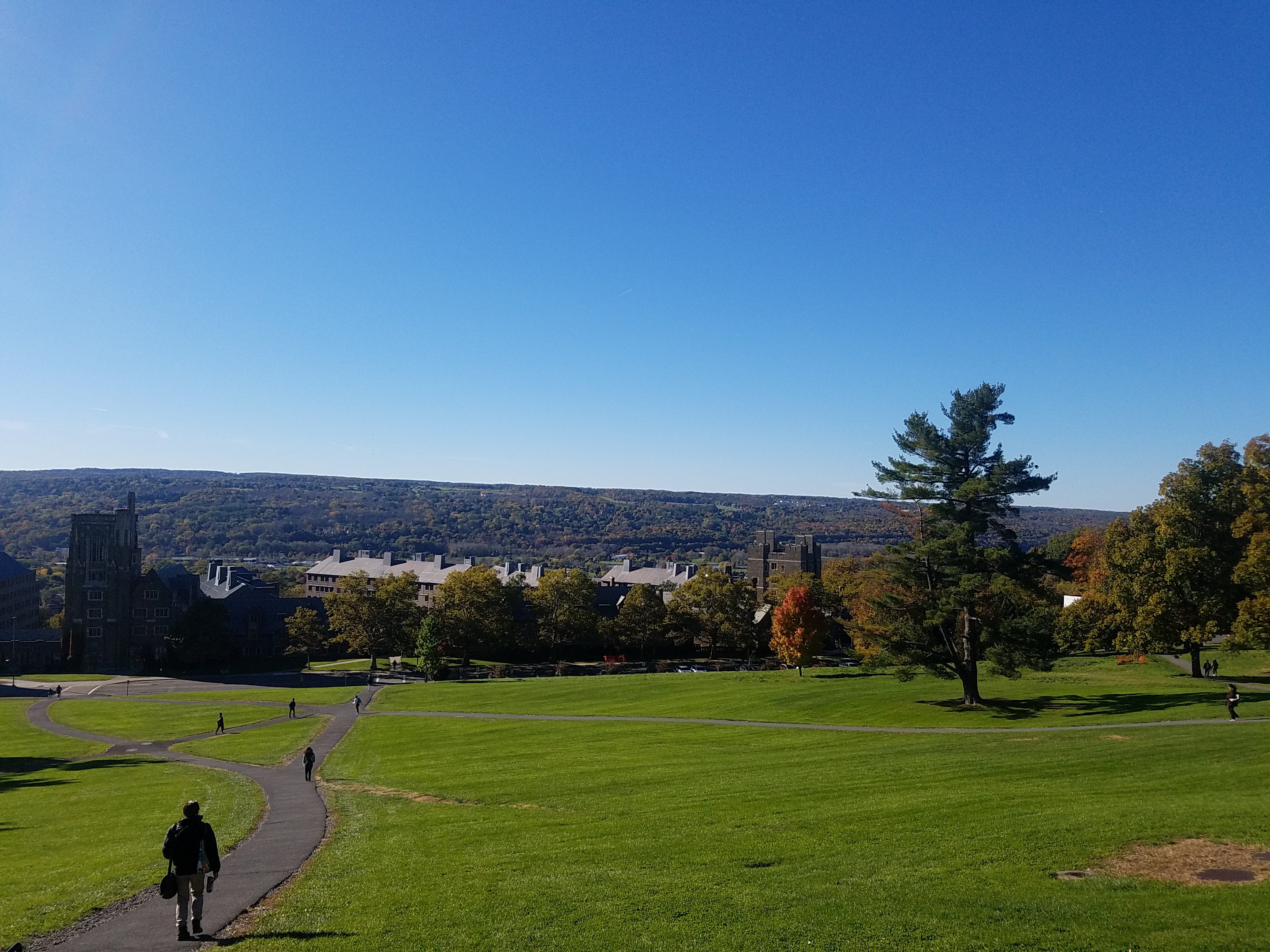Stepping out of my Comfortable Life and Jumping into an MPA

Sarah Brown is a first-year MPA student. An organic farmer from Washington State, she spent last year in a small village in Hungary as a Fulbright Fellow, studying rural social innovation. She has come to Cornell hoping to build her tool-kit, which will allow her to be more effective in pushing a positive agenda for social change. Sarah has brought her two elementary-aged children with her to Ithaca and is single-parenting these two years while her husband stays behind to work in Washington.
Picture this: Before I started at CIPA, I was living on my farm, in a gorgeous valley, with good employment in non-profits, great community and friends, and a happy family life. I decided to step away from all of this to pursue an MPA (okay, I did bring my family along for the ride).
Am I:
- Crazy?
- Courageous?
- Driven by a blind passion for an advanced degree?
- Bold and visionary?
I often think I must be crazy to walk away from such a bountiful life, but I’m not sure any of these afore-mentioned descriptors are a perfect fit. Here’s what I do know about this big decision. I needed more—more ideas, more connections, more theory and introspection, more chances to apply new ideas, more chances to try something new. I was ready to stretch my imagination to tackle pervasive problems with new tools; to attend lectures and classes where my classmates AND professors would mention not just job opportunities, but also books, organizations, and ideas that might spark an interest, or drop a thread I could follow. I was ready to expose my hungry brain to connections I wasn’t finding or making on my own. I knew that taking two years to immerse myself in a community pursuing many of the same objectives was my best bet.
But then I started Googling MPAs, with results like, “Is an MPA right for you?” “What’s an MPA worth?’ “An MPA, MBA, or MPP- which should you choose?” I started to think maybe the MPA was just a new-ish way for schools to make even more money from their fellows, or maybe this was the track for people who can’t get into MBA programs? (Hint: This is true in some programs but not at CIPA.)
Luckily, the depth of my research didn’t stop at basic Google searches. I persisted in asking questions of alums, current students, professors at CIPA and other schools at Cornell, and a wide variety of people outside the Cornell circle. I tapped as many people as I could about the prospect of a degree versus continuing to work. I also chronicled my own thinking in my journal and tried to approach my decision-making from as many different perspectives as I could imagine; this included imagining myself in two years still working and without a degree. I found a wealth of consistently positive responses about getting an MPA, and especially about being a part of CIPA. In fact the CIPA-related responses were so positive, I started to worry my sample was skewed somehow (rest assured, my sample was spot-on)!
When I asked one professional I met at a rural innovation conference in Scotland what he thought of my options of pursuing an MPA, or continuing my work tackling societal problems from a local and regional perspective he didn’t skip a beat: “Get the degree, the world will still have plenty of problems waiting for you when you finish.”
I’m almost five months in, and I am sure I made the right decision. The MPA at CIPA is a perfect degree; I can tailor my degree to my interests and skills, and my professors consistently relate their area of study to current events, and discuss how our cohort of MPA candidates can influence policy and public perception.
To answer my own question, above, I think I’m a bit crazy, and utterly inspired by out-of-the-box thinking and progressive policy making, and THAT is why I’m thriving at CIPA. Next question? Summer internships (yikes!)…
If you have questions about attending Cornell University's Institute for Public Affairs, we encourage you to request more information today!


